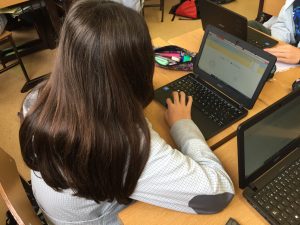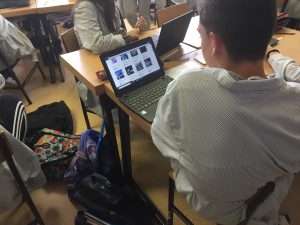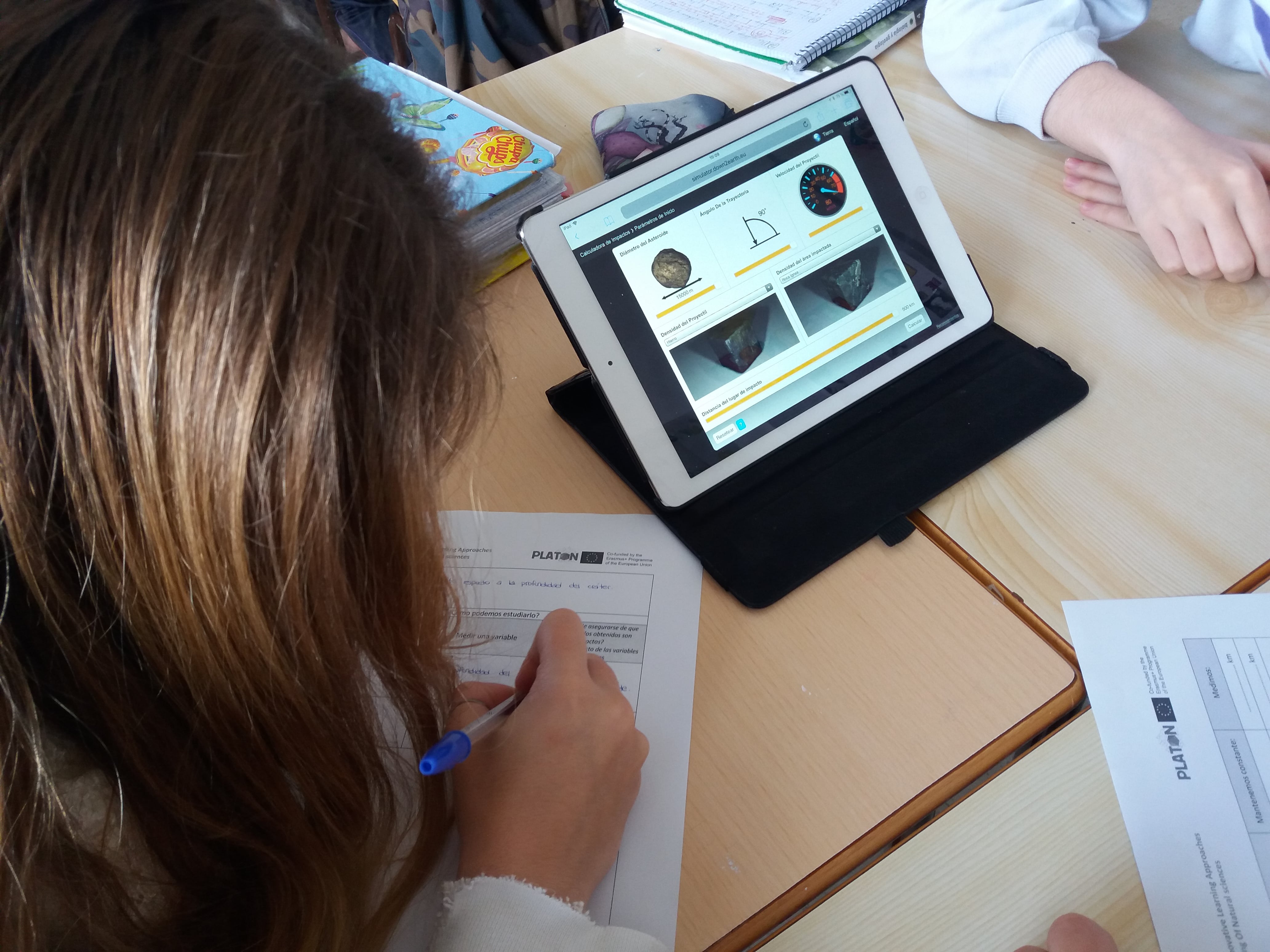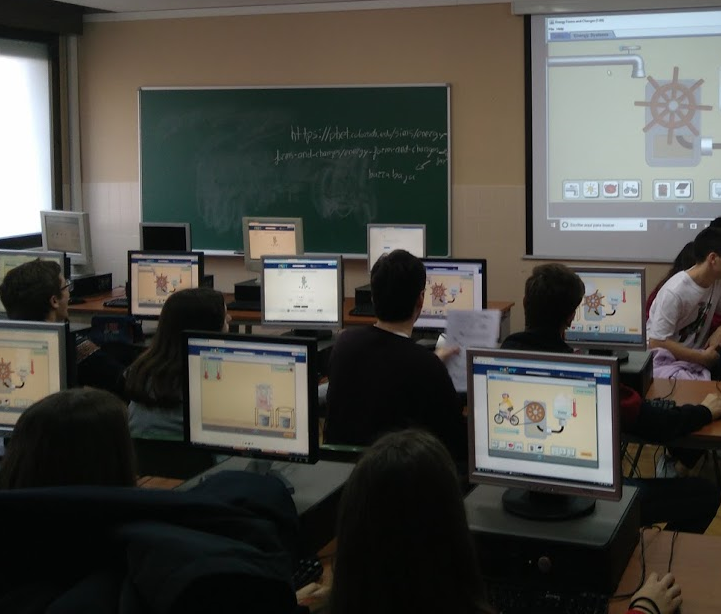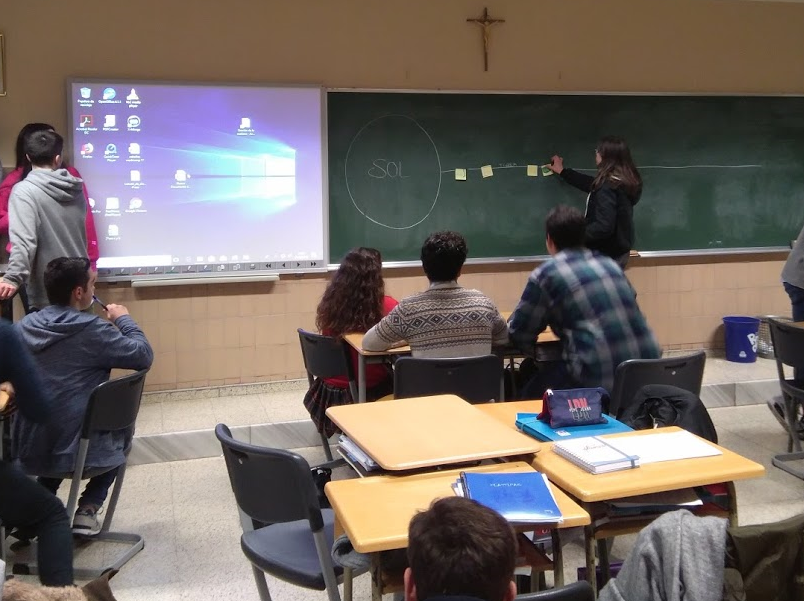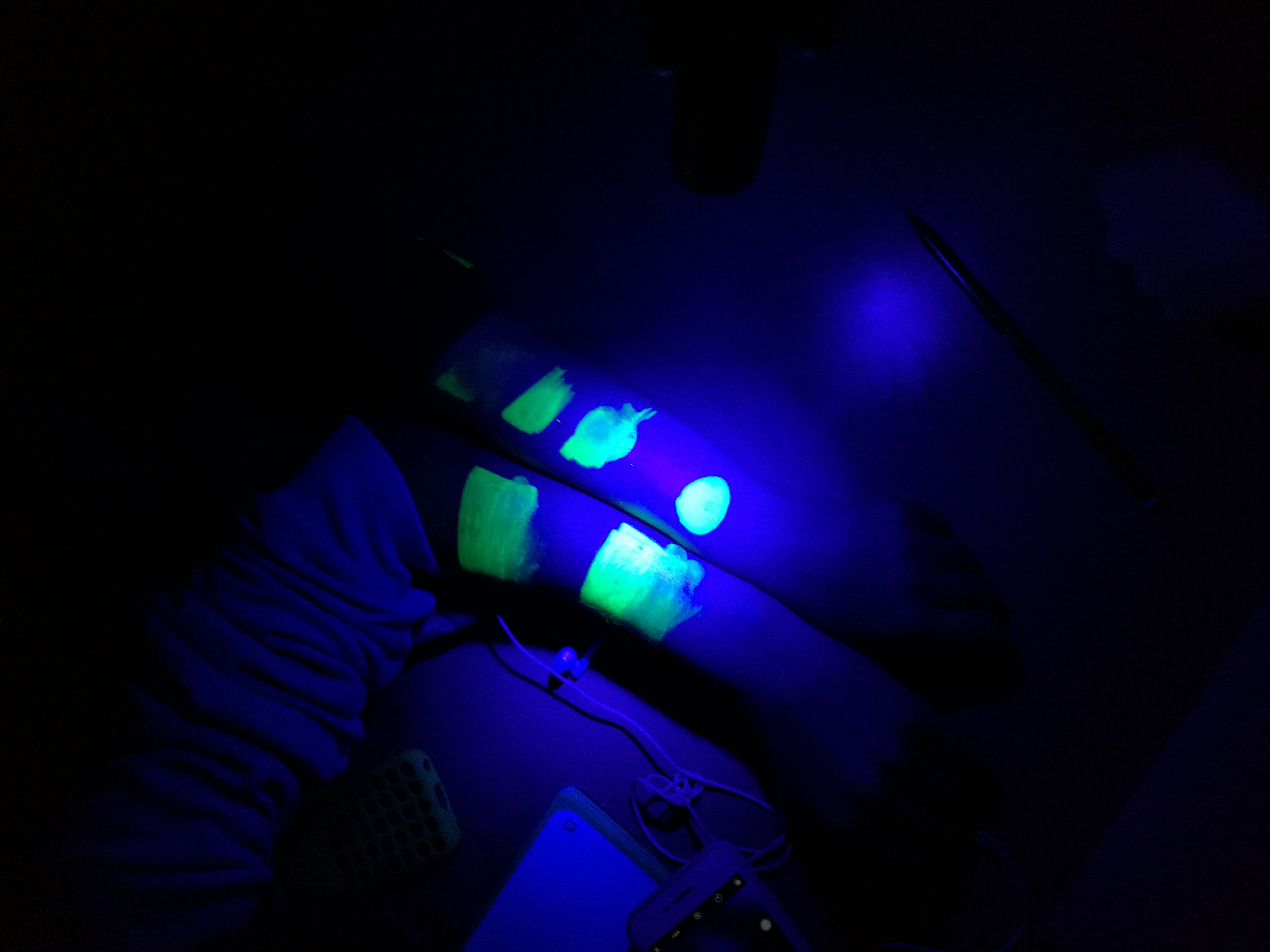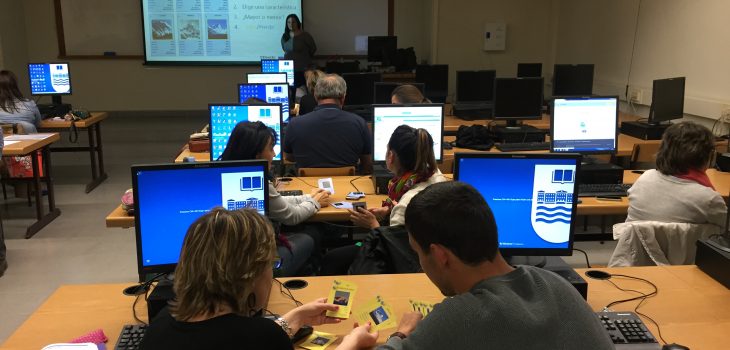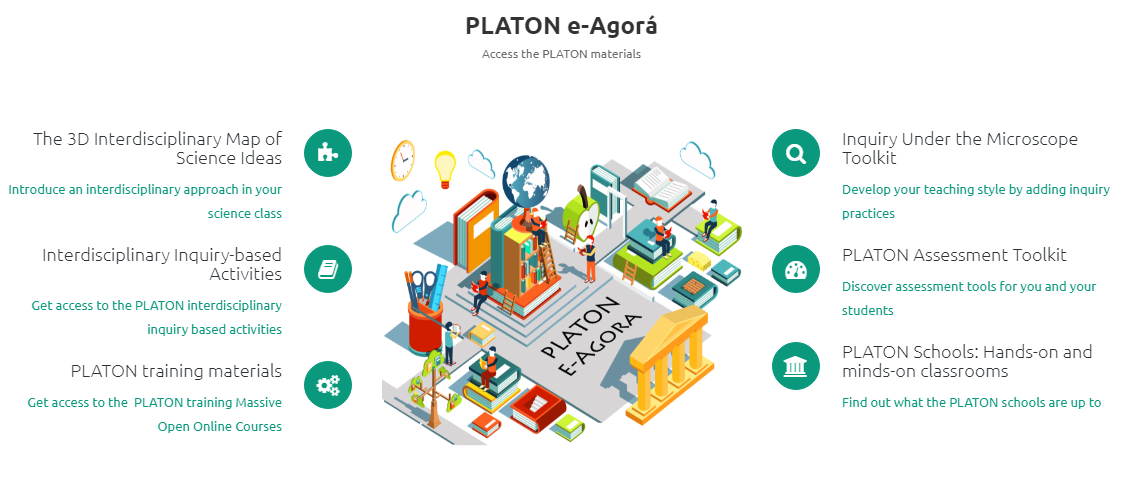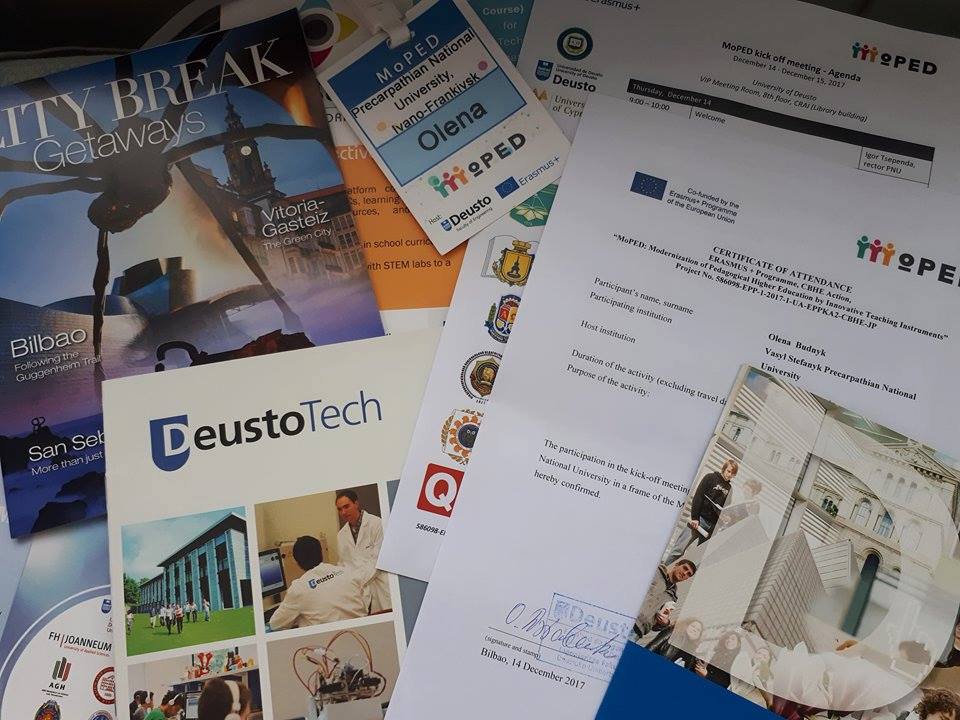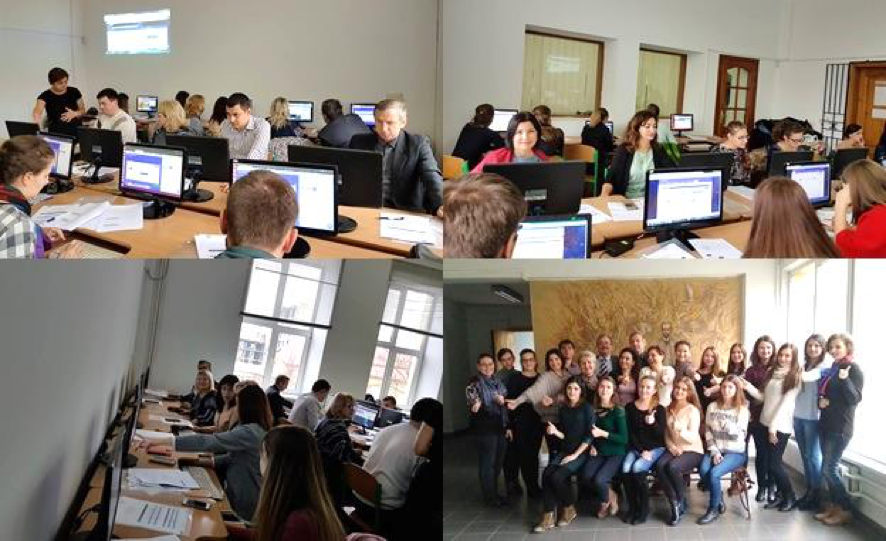Este es el décimo año que organizamos las Jornadas de Educación Digital junto con aulaBLOG y hemos decidido hacer algo especial.
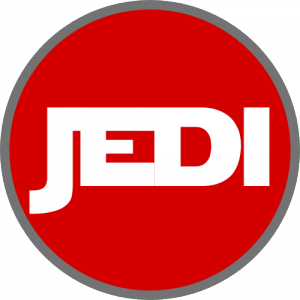
En lugar de hacer una jornada doble de jueves y viernes por la tarde, hemos decidido reservar la mañana del 24 de febrero para organizar un conjunto de conferencias cortas (máximo 20′) con ponentes de primer nivel en la comunidad educativa:
Alfredo Hernando
Alfredo Hernando Calvo (@alfredohernando), nació y creció en Aranda de Duero, estudió Psicología en Salamanca, se enamoró en las Azores y anda a saltos entre Viena y Madrid. Es educador e investigador y ha hecho de la innovación educativa uno de sus caminos vitales.
Viaja por el mundo a través de #escuela21 para descubrir escuelas, abrir frentes y publicar una guía útil para transformar nuestros centros en escuelas del siglo XXI. Disfruta con la creación de proyectos innovadores y con la vivencia y el descubrimiento de las nuevas formas y espacios de aprendizaje que están transformando el mundo desde cada escuela.
Le gusta escuchar y comunicar. Ha trabajado como profesor y he desarrollado proyectos acompañando a profesores de muchos otros. También le gusta escribir cuando escribe como le gusta. Ha publicado materiales educativos y artículos en diferentes medios y ha sido redactor jefe de la Revista Educadores.
Javier Monteagudo
Javier Monteagudo es de Madrid, docente de Educación Musical y componente de diversas agrupaciones musicales. Empezó sus estudios de música en el Instituto de Música y Tecnología de Madrid, cursando Guitarra, lenguaje musical y armonía moderna. Estudió en la Facultad de Ciencias de la Educación de la Universidad Complutense, obteniendo la diplomatura de Magisterio en la especialidad de Educación Musical y tiene estudios en la Universidad Autónoma de Madrid, de Ciencias e Historia de la Música, aún por finalizar.
Con las diferentes formaciones en las que trabaja ha realizado conciertos y varias giras por EE.UU., Portugal, Francia, Italia y Túnez, así como numerosos conciertos dentro de España. Es Miembro fundador del grupo Balbarda, con el que ha grabado varios discos. También es guitarrista del grupo asturiano Brenga Astur y ha estado en la formación del grupo Barahunda, Cruceta Ballet Flamenco, Reverse, etc.
Ha sido llamado por la Orquesta de Estudiantes de la Comunidad de Madrid, para participar como mandolinista solista en el Auditorio Nacional. Ha participado siendo coautor en el Certamen Coreográfico de Madrid en el año 2004 llegando a la final en el Teatro Álbeniz de Madrid. Ha trabajado para grupos de danza y de artes escénicas, teatro de calle, performance, etc.
Desarrolla su labor docente desde hace más de 15 años en diferentes centros de Madrid. También colabora con diferentes instituciones educativas en la formación docente en áreas referentes al cambio educativo. (INTEF, CTIF, CRIF, CITA, UIMP, etc.)
Leire Arana
Leire Arana fisikan lizentziatua da eta egun Arizmendi Ikastolako Almenen (Eskoriatza) dihardu irakasle lanetan. “Matematiketan.eus. Matematikak eskuetara” izenburuarekin argitaratu berri du Leire Arana zientzia irakasleak seme-alabekin zein ikasleekin matematika lantzeko erabilgarri izan dakigukeen bloga. Egitura samurra du: gaiak, etapak, filosofia…. Eta dagoeneko zenbait post idatzi ditu; azkenekoak, esaterako, hauexek: “Multiplo komunetako txikiena txaloka” edo “Geometria kotxeen logoetan”. Interaktiboa izateko sortu du Aranak bloga, eta, berak aurkezpenean dioen moduan, “matematikak bizitzeko beste modu bat dagoela aldarrikatzeko”. Guraso eta seme-alabentzat ez ezik, matematika irakasle eta ikasleentzat ere baliagarria.
Jon Bustillo
Jon Bustillo es docente de la Escuela de Magisterio de Vitoria-Gasteiz, dentro del departamento de Didáctica y Organización Escolar de la UPV, donde imparte asignaturas como Nuevas Tecnologías Aplicadas a la Educación. Puntualmente ejerce como tutor para algunas asignaturas del área educativa en el centro asociado de la UNED en Vitoria-Gasteiz. Ha participado como docente en eventos como EDUTEC, EDUCARED (Fundación Telefónica), JEDI (Universidad de Deusto) e imparte cursos, ponencias y comunicaciones relacionados con las nuevas tecnologías aplicadas a la educación.
Estíbaliz Díaz
Estíbaliz Díaz es doctora en Biología y experta en biología marina dinámica de la población de la anguila, evaluación y ordenación de pesquerías y ecosistemas. Ha participado en varios proyectos de la UE relacionados con planes de gestión como CEVIS y COBECOS. Es la representante española en el Grupo de Trabajo del CIEM sobre anguilas y ha participado en los Grupos de Revisión Científica del CCTEP y la CITES. Además, ha colaborado con la Universidad de Deusto en el programa INSPIRA STEAM como mentora y en su conferencia nos hablará de su experiencia siendo mentora para el fomento de las vocaciones científicas femeninas.
Además, contaremos con un espectáculo matemágico por parte de Carlos Uriarte en mitad de las conferencias y una sesión de cierre en la que aulaBLOG resumirá los principales aportes de las conferencias empleando rutinas de pensamiento.
Las #jedi2018 tendrán lugar en el Audiotorio Icaza de La Comercial (Universidad de Deusto, Bilbao).
Agenda
La agenda es la siguiente:
09:45: Acogida
10:00: Presentación
10:15: Primer turno de conferencias
11:15: Café
12:00: Segundo turno de conferencias
13:15: Evento de cierre
13:30: Fin de las jornadas
Inscripción
La inscripción es libre y gratuita pero estará limitada por motivos de aforo (por favor, si te inscribes y finalmente no puedes venir, avísanos para ceder tu plaza a otra persona).
